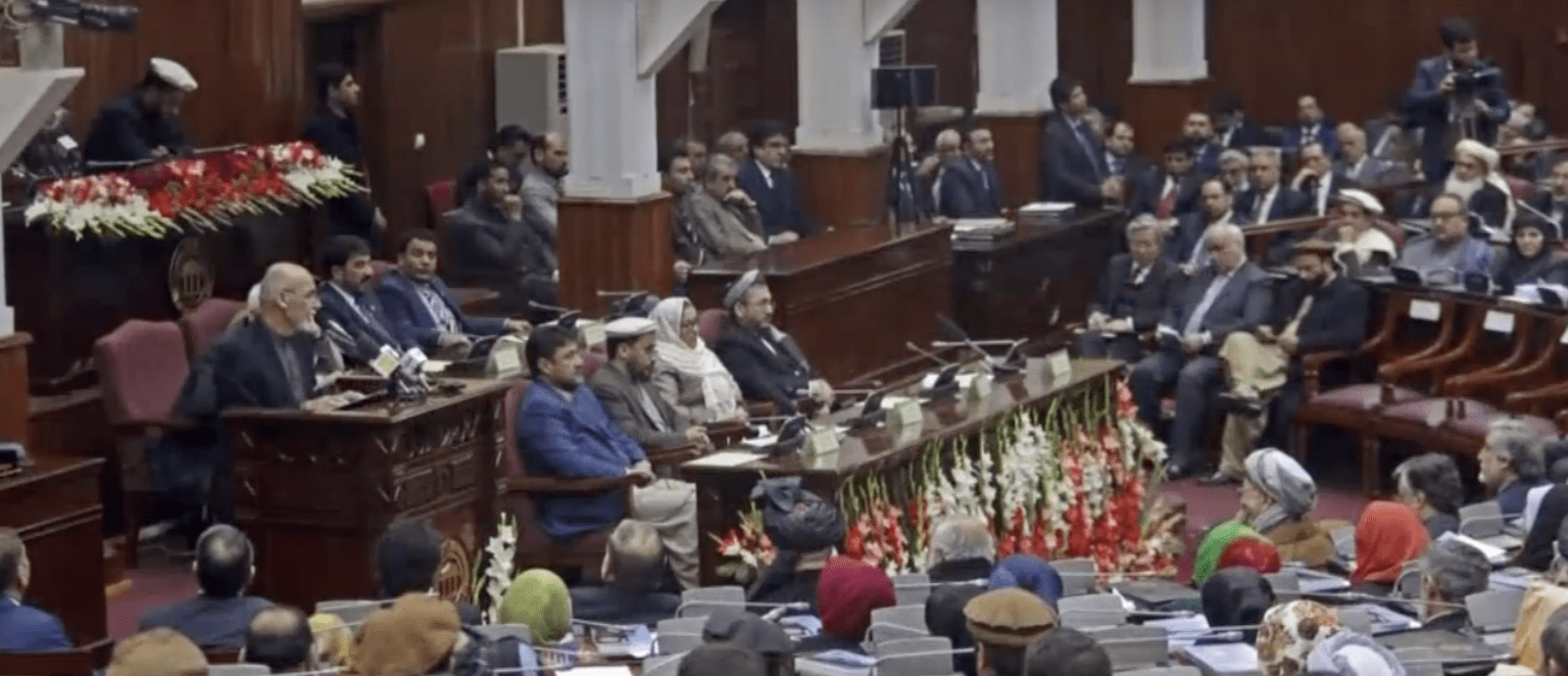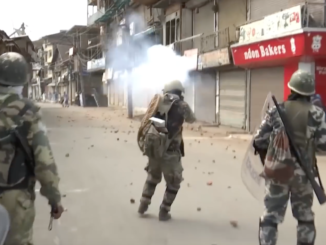 After a protracted stay of 17 years, the United States has decided to withdraw and is in the process of negotiating a ‘Peace agreement’ that may not necessarily lead to a long term peace in the country. The decision to withdraw from Afghanistan was an outcome of a stalemate between the Afghan Taliban and the U.S. that was not ready to accept that it has no other choice but to extricate.
After a protracted stay of 17 years, the United States has decided to withdraw and is in the process of negotiating a ‘Peace agreement’ that may not necessarily lead to a long term peace in the country. The decision to withdraw from Afghanistan was an outcome of a stalemate between the Afghan Taliban and the U.S. that was not ready to accept that it has no other choice but to extricate.
The U.S. failed to eradicate the Taliban network who are now occupying more or less the same amount of area that was ruling before 2001. The U.S. has lost dozens of American lives in this war and continuing with its presence would have caused more damage to the U.S. reputation, and therefore, President Trump announced to withdraw troops from Afghanistan soon after he assumed the Office of the President in 2017.
The ongoing negotiations are centered around four points. One, Afghan territory will not be used against any other country; two, the time period for the U.S. withdrawal; three, ceasefire by the Taliban’s; and finally, intra-Afghan dialogue. There is a general agreement on the first two, and Taliban could agree on cease fire as soon as the time table for the U.S. forces withdrawal is finalized, but the last issue of intra-Afghan dialogue is the most complicated one that could unravel the potential peace process.
The Taliban have refused to negotiate with the Afghan government as they do not consider them as a legitimate government but ‘puppets’ of the U.S. The Afghan government itself, is not keen on the U.S. leaving the country as their very existence is dependent upon U.S. presence in Afghanistan.
The Taliban are seeking ways to legitimize themselves and excluding the Afghan government from the talks is their very first step. The consequence of this exclusion will be precipitated in the manner that after the U.S. withdrawal, the Taliban will seek to dominate their share in the formation of the government. This is likely to precipitate chaos and instability.
A government led by the Taliban is unlikely to bring peace in Afghanistan or in the region. Afghanistan may return to where it was two decades ago with difficulties for Afghan women, weak institutions and lack of human rights. It would again turn into a battleground between the Taliban and other groups. While the U.S. is negotiating with the Taliban; whereas the Afghan community is heterogeneous in composition which includes Tajiks, Uzbeks and various other groups of different ethnic backgrounds. A peace process excluding these groups might not be acceptable, and they might rebel against the new government.
Members of the Afghan government are openly criticizing the peace talks and have started targeting the key people involved in it, claiming that the peace talks are being used just to gain control over Afghanistan once the U.S. withdraws. A senior Afghan official, Hamdullah Mohib had termed Zalmay Khalilzad”s efforts as an ambition to become the “Viceroy” of Afghanistan. Such attitudes will result in future disagreements between the Taliban and the current government over various issues related to Afghanistan.
There have been certain disagreements between both of the parties as well. For example, both parties couldn’t agree on a particular definition of terrorism since defining terrorism would raise questions on the whole ideology nurtured by the Taliban. Hence, the Taliban are not willing to label their doings as something notorious. Moreover, the time span is also not sorted out between both the parties. The Taliban want the United States to leave in around six months, whereas the latter wants the process to take about 2 to 3 years.
Moreover, the intra-Afghan dialogue is crucial for the peace talks. However, the peace talks suffered a significant setback on 19th April when the Taliban were outraged at the strength of the delegate that was to represent the Afghan government at the Doha Summit. President Ghani chose a group of 250 people in the delegation, to which the Taliban responded by saying that these talks are “not an invitation to some wedding or other party at a hotel in Kabul.”The Ghani government blamed the Qatari government, emphasizing that the “Sponsors” didn’t approve of the strength of the Afghan delegation.
The point that infuriated the Taliban was that by sending such a large delegation, the Afghan government wanted to give these talks the shape of a summit. However, these rounds of talks were being conducted in personal capacities. Consequently, the talks are now postponed until indefinite time.
Washington is not happy with this development. The optics of the Taliban and the Afghan delegation negotiating would have a constructive impact on the peace talks. However, obstructions of these kinds pose a challenge to reaching any definite conclusion. Zalmay Khalilzad expressed his disappointment over the shattering of the talks and at the same time also gave assurance to bring the parties back on track by saying that “We’re in touch with all parties and encouraged that everyone remains committed to dialogue.”
The potential of the intra-Afghan government summit cannot be overlooked. Even if the summit was unable to achieve anything concrete spontaneously, there was a dire need to get both of the parties engaged in a dialogue, especially in the wake of the “Spring Offensive” that the Taliban have launched.
The peace talks going on between the United States and Taliban are somewhat uncertain. The end result of these talks still remains opaque. However, even if these talks are successful and can chalk out a U.S. withdrawal, it wouldn’t result into a sustainable peace, and the U.S. withdrawal might end up in a civil war kind of situation in Afghanistan, with each side attempting to gain maximum power. The Taliban are using delaying tactics and at the moment are in a better condition than the Ghani government, which appears to be of marginal importance. Hence the Afghan Peace Process might not result in peace for Afghanistan; rather it would just be a hollow victory for the United States.
Shaza Arif is a student of Defence and Diplomatic Studies at Fatima Jinnah Women University, Rawalpindi, Pakistan.
Related Articles
![]()




Be the first to comment